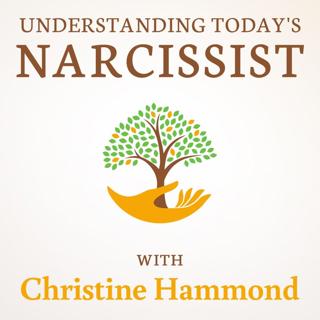
Dr. Crystal Hollenbeck - The Truth About Narcissistic Traits and Denial in Sex Addiction
Christine Hammond interviews Dr. Crystal Hollenbeck, a licensed mental health counselor, about sexual addiction and narcissistic traits. They discuss the signs of sex addiction, how narcissistic traits show up in denial, and the difference between being an actual narcissist and somebody who's an addict with narcissistic traits. They also talk about what it's like to be in a relationship with somebody who might have a sex addiction with narcissistic traits. Dr. Hollenbeck emphasizes that not every addict is a narcissist, but some narcissists can become addicts due to their belief that they are invincible.Advertising Inquiries: https://redcircle.com/brandsPrivacy & Opt-Out: https://redcircle.com/privacy
28 Apr 202311min

Dr. Crystal Hollenbeck - Sexual Narcissism: How to Identify and Protect Yourself
Dr. Crystal Hollenbeck, a guest expert, explains what sexual narcissism is and how it differs from regular narcissism. She also discusses the behaviors of sexual narcissists in relationships, such as lack of empathy, pushing for sexual encounters, and gaslighting. The episode emphasizes the importance of mutual consent, emotional connection, and respect for boundaries in healthy sexuality. It is part one of a two-part series on sexual narcissism.Advertising Inquiries: https://redcircle.com/brandsPrivacy & Opt-Out: https://redcircle.com/privacy
14 Apr 202313min

Part 3 of an interview with Dr. Nadine Macaluso, LMFT
Part 3 of an interview with Dr. Nadine Macaluso, LMFT nmacaluso1@me.com Restoring Resilience https://www.nadinemacaluso.com/ Advertising Inquiries: https://redcircle.com/brands Privacy & Opt-Out: https://redcircle.com/privacy
4 Mars 202221min

Part 2 of an interview with Dr. Nadine Macaluso, LMFT
Part 2 of an interview with Dr. Nadine Macaluso, LMFT nmacaluso1@me.com Restoring Resilience https://www.nadinemacaluso.com/ Advertising Inquiries: https://redcircle.com/brands Privacy & Opt-Out: https://redcircle.com/privacy
18 Feb 202220min

Part 1 of an interview with Dr. Nadine Macaluso, LMFT
Part 1 of an interview with Dr. Nadine Macaluso, LMFT nmacaluso1@me.com Restoring Resilience https://www.nadinemacaluso.com/ Advertising Inquiries: https://redcircle.com/brands Privacy & Opt-Out: https://redcircle.com/privacy
4 Feb 202220min

The Narcissistic Cycle of Abuse Among Siblings
As sisters, Nicole and Sofi grew up in a two-parent, middle class family. From the outside looking in, things appeared normal and healthy. But for Sofi, life was very difficult. Her sister bullied her, stole prized possessions, would lie and blame Sofi for things that went wrong, physically hit her, and destroyed some of Sofi’s things. Yet, Nicole seemed to charm their parents, constantly making Sofi out to look like the dangerous one. Read more... Advertising Inquiries: https://redcircle.com/brands Privacy & Opt-Out: https://redcircle.com/privacy
29 Okt 202111min

5 Ways to Survive Narcissistic In-Laws
It was a second marriage for Clark and Claudia so they were both prepared for a difficult first couple of years as they blended their families together. But what they did not expect was the added difficulty of Clark’s parents. He knew that they were narcissistic and even prepared Claudia for their limited encounters. However, the holidays brought out an intensity that Clark did not expect. It also was Clark’s birthday and his mother invited them by saying, “Only I know how to properly celebrate our special day.” The passive-aggressive comment was just the beginning of the strange behavior. Read more... Advertising Inquiries: https://redcircle.com/brands Privacy & Opt-Out: https://redcircle.com/privacy
15 Okt 202113min

Christine Hammond Interviews Chris and Lisa, Part 2
Christine Hammond Interviews Chris and Lisa, Part 2 Advertising Inquiries: https://redcircle.com/brands Privacy & Opt-Out: https://redcircle.com/privacy
30 Juli 202118min





















